Hamida Ali Hazara opened a restaurant to help female victims of attacks against Quetta’s Shia-Hazara minority community. The project turned out to be far more controversial—and dangerous—than she anticipated.
As a child, Hamida Ali Hazara would watch her father separate eggs each morning. The yellow of the yolk, he would explain, reminded him of unborn chicks; the whites alone made for a guilt-free breakfast. The ritual stayed with Hamida.
“How do I explain this to you,” she says, almost apologetically, seated inside her home in Hazara Town on the western outskirts of Quetta, the provincial capital of Balochistan in Pakistan. “I won’t step foot inside a butcher shop. When [my husband] Ali buys meat, I wait outside, so I don’t have to process the animal’s pain. I can’t stomach the sight of blood.”
In a country of meat-eaters, Hamida is twice a minority: she’s a Hazara, and vegetarian. But for Pakistan’s Hazara community, violence and indifference are all-too-common features of daily life. Hamida opened a restaurant in the heart of Hazara Town in November 2017 with the goal of generating skills and income for women affected by repeated attacks against their community. If a woman lost the breadwinner of her family to anti-Hazara attacks, or was victimized herself, she could come to the restaurant, work in a safe place, earn money, and support her family. That simple, altruistic project turned out to be far more controversial—and, ultimately, dangerous—than she could ever have anticipated.
Though no one knows the precise history of the Hazara ethnic community, a widely accepted theory traces their origins to a group of Mongol troops left behind in central Afghanistan after a failed invasion of India in the 13th century. Following a genocide in the 1880s that, some estimate, might have diminished the population by 60 percent, many Hazaras fled to Khorasan in Iran and Quetta in modern-day Pakistan. As Shias in a majority-Sunni nation, Pakistan’s Hazaras formed ghettos in the neighborhoods of Mariabad and Hazara Town. A second wave of migrants arrived in the 1990s as the Afghan Taliban expanded its power. Today, an estimated 6.8 million Hazaras live in Afghanistan, with a diaspora of 1.5 million in Pakistan.
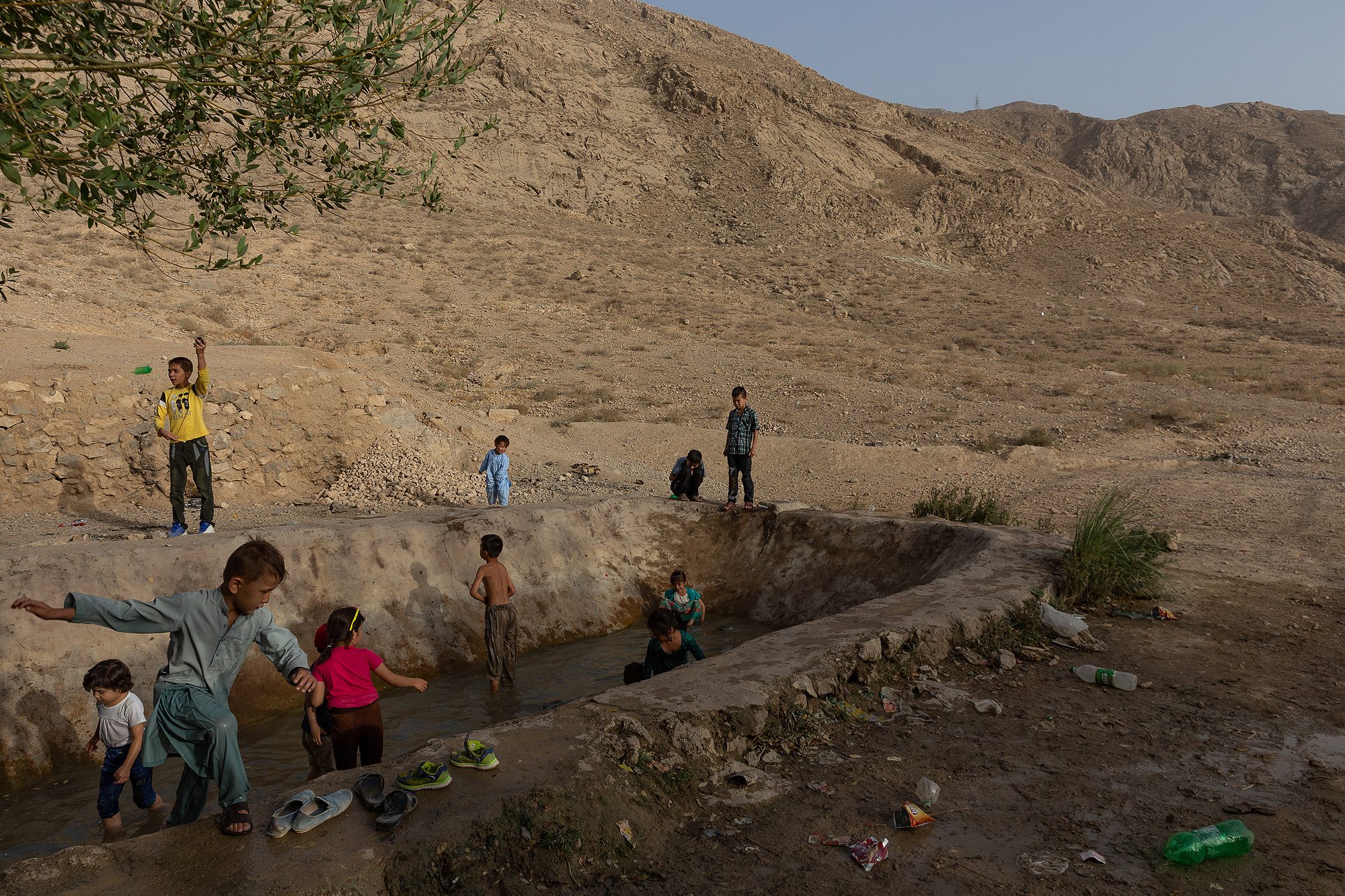
I met Hamida on August 20, two days before the Eid al-Azha holiday, when Muslims traditionally slaughter goats, cows, or sheep to honor Abraham’s willingness to sacrifice Ismail. Fattened livestock wandered in herds down the narrow, uneven lanes of Hazara Town. At one of the five checkpoints that mark major points of ingress to Hazara Town, a young soldier from the Frontier Corps stood watch in his oversized camouflage uniform. Checkpoints are not an unusual sight in Quetta—the city’s name comes from the Pashto word for ‘fort’—but repeated attacks by militants of varying ideologies have led to heightened security.
I had planned to meet Hamida at the restaurant that evening, but was surprised to learn it had been sealed off three days earlier. The only indications of its previous use are the sign bearing its name and the election-time campaign posters clinging to its glass doors.
Hamida entered politics more or less by accident shortly before the restaurant’s closure, running for a provincial assembly seat in the general elections on a Jamhoori Watan Party ticket. This decision put her at odds with her landlord, a supporter of the Hazara Democratic Party, which represents the interests of the Hazara community—and she was forced to vacate the space.
Hamida was expected to join the Hazara Democratic Party’s ranks, but she didn’t want to “confine her politics on the basis of ethnicity or religion,” she tells me in her home that night. She lost by a significant margin, but winning was never the point. “I wanted to help people in Hazara Town. I come from a similar working-class background, so I understand the problems they face.”
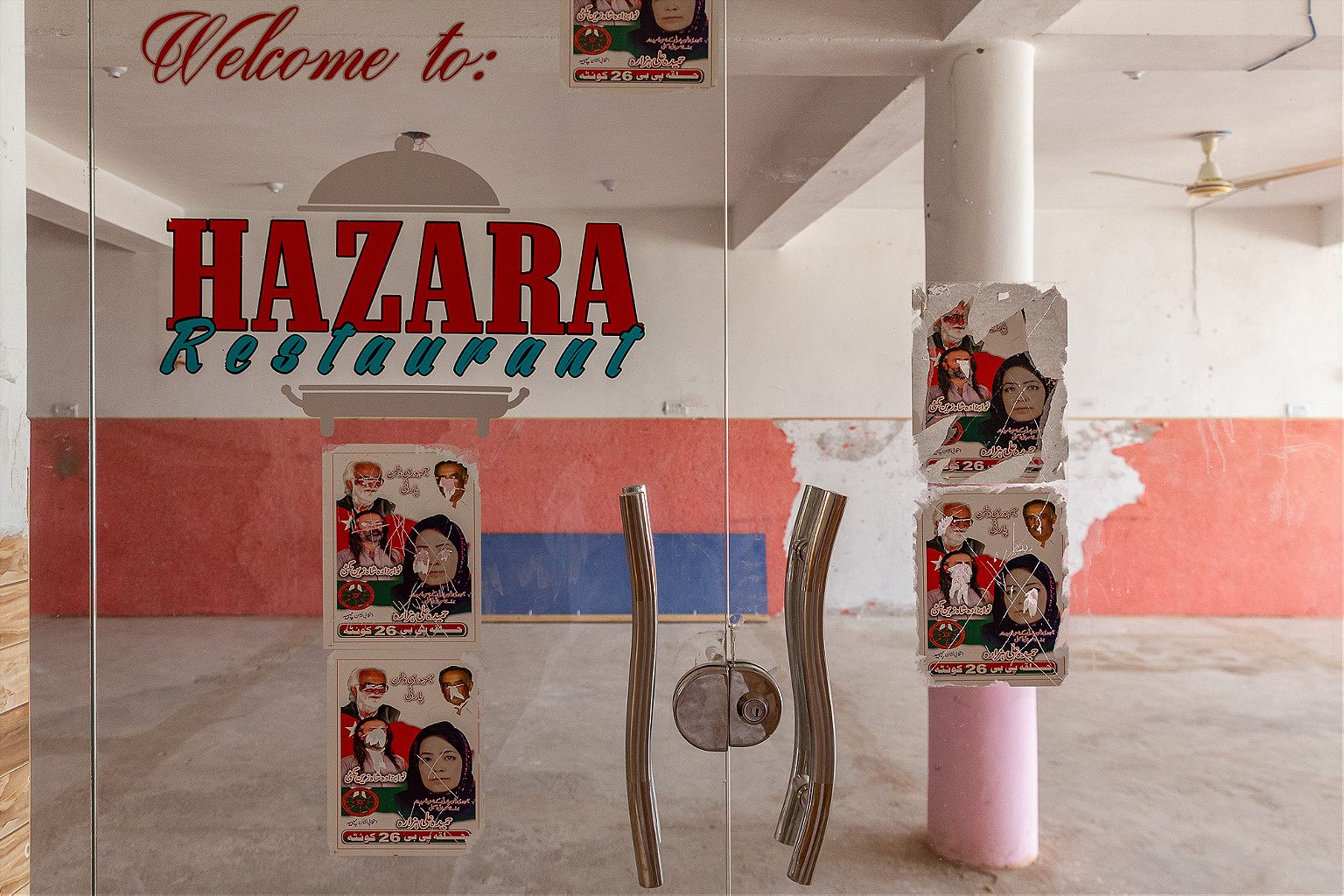
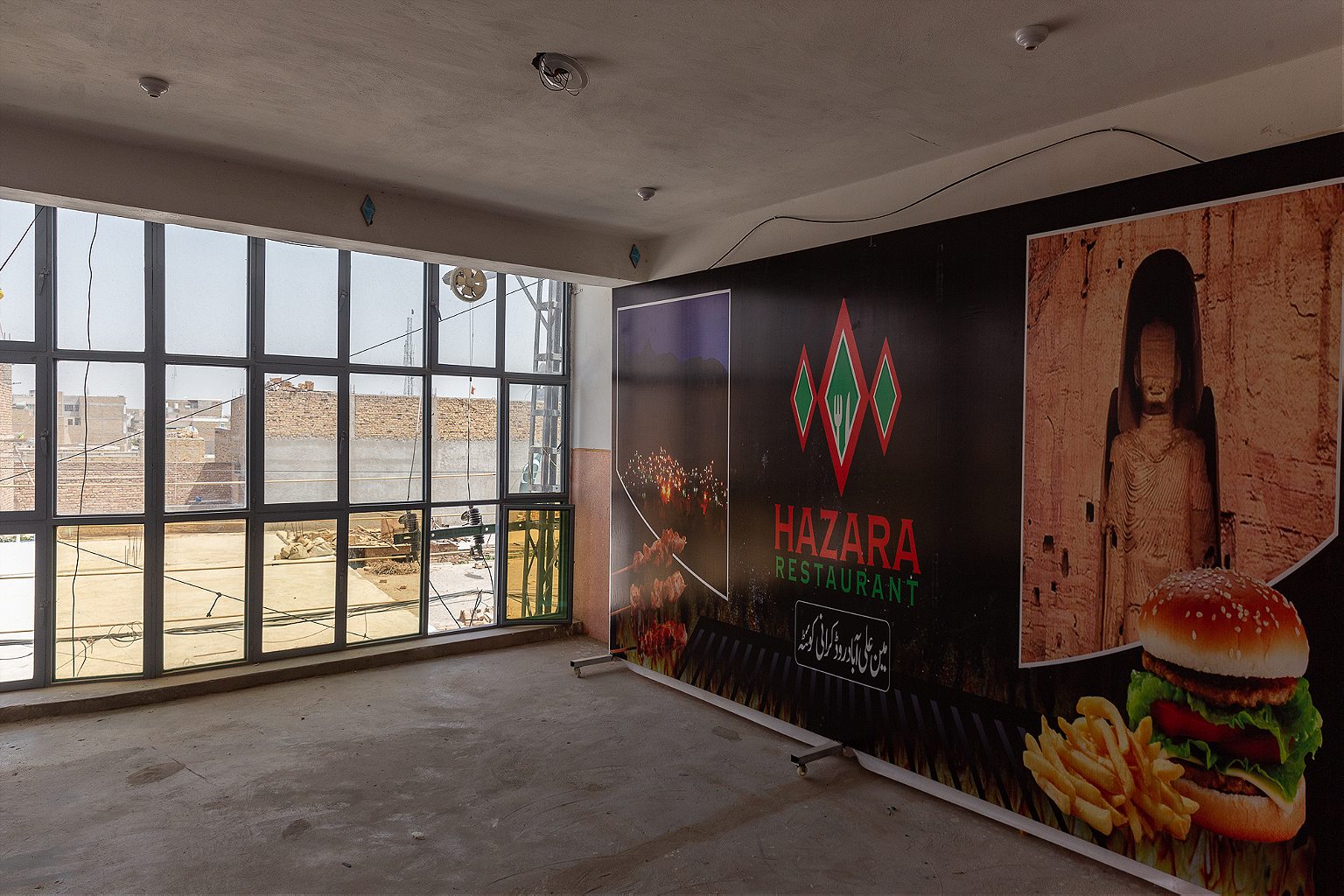
Hamida and I watched Ali in her kitchen, cutting tomatoes into fine slices for that night’s dinner, a traditional spread of korma, a richly spiced chicken curry, with a simple salad. “We’ve lost sleep over this, not having a permanent place of our own,” Ali says. “Imagine having to move again, after putting so much into this business.” His chopping quickened. “You know, you could replace that famous Chef Whatshisface on TV,” Hamida says with a smile.
The meal was, for the most part, standard-issue Pakistani cooking, save for a flurry of shoestring potatoes on the korma and a jar of doogh, a savory yogurt-based drink from Iran. Ali started cooking for his brothers and sisters as a boy, when his mother developed knee problems and could no longer stand in front of the stove for long periods at a stretch. Most of the dishes on Hazara Restaurant’s menu were basic Pakistani preparations. “Traditional Hazargi cuisine has Afghan and Central Asian influences, but our tastes have adapted to spicier Pakistani food,” Ali explains.
He served only two dishes that could be classified as Hazargi—aash, a meal comprising assorted grains with spinach, minced meat and yogurt; and mantoo, a meat-based dumpling common throughout Central and East Asia—but even these appeared only once a week. Because Pakistani Hazaras view their traditional cuisine as ‘home food,’ prepared by mothers and grandmothers, few would pay to eat it. “My own children rarely eat non-spicy food,” Ali says.
Ali and Hamida’s sons, aged ten and fifteen, dutifully set the table while Hamida kept an eye on the TV screen, catching snippets of the newly elected prime minister Imran Khan’s first address to the nation. “This gentleman doesn’t know how to talk politics, he’s just like me!” she laughs.
Hamida is prone to laughter: after a self-deprecating joke about her bad sense of direction and worse cooking skills, or nervously right before the conversation takes a grim turn. Over the years, Hamida has become a prominent figure in Balochistan’s small progressive and feminist circles. Three years ago, she set up the Hurmatty Niswa Foundation, an NGO dedicated to financially assisting women in need. The restaurant, too, was an extension of a lifetime spent applying the gentleness she learned from her father in a challenging and violent world.
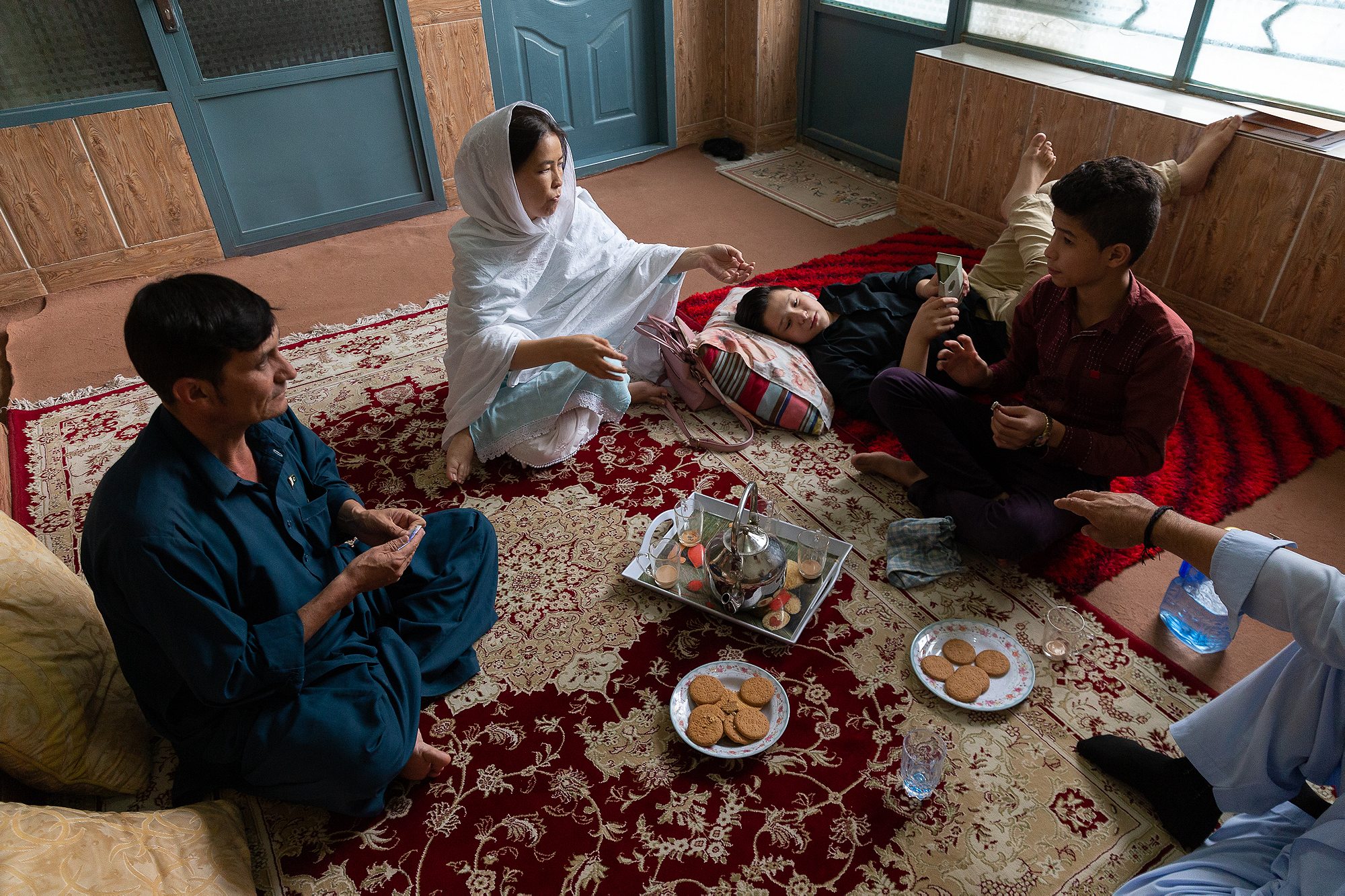
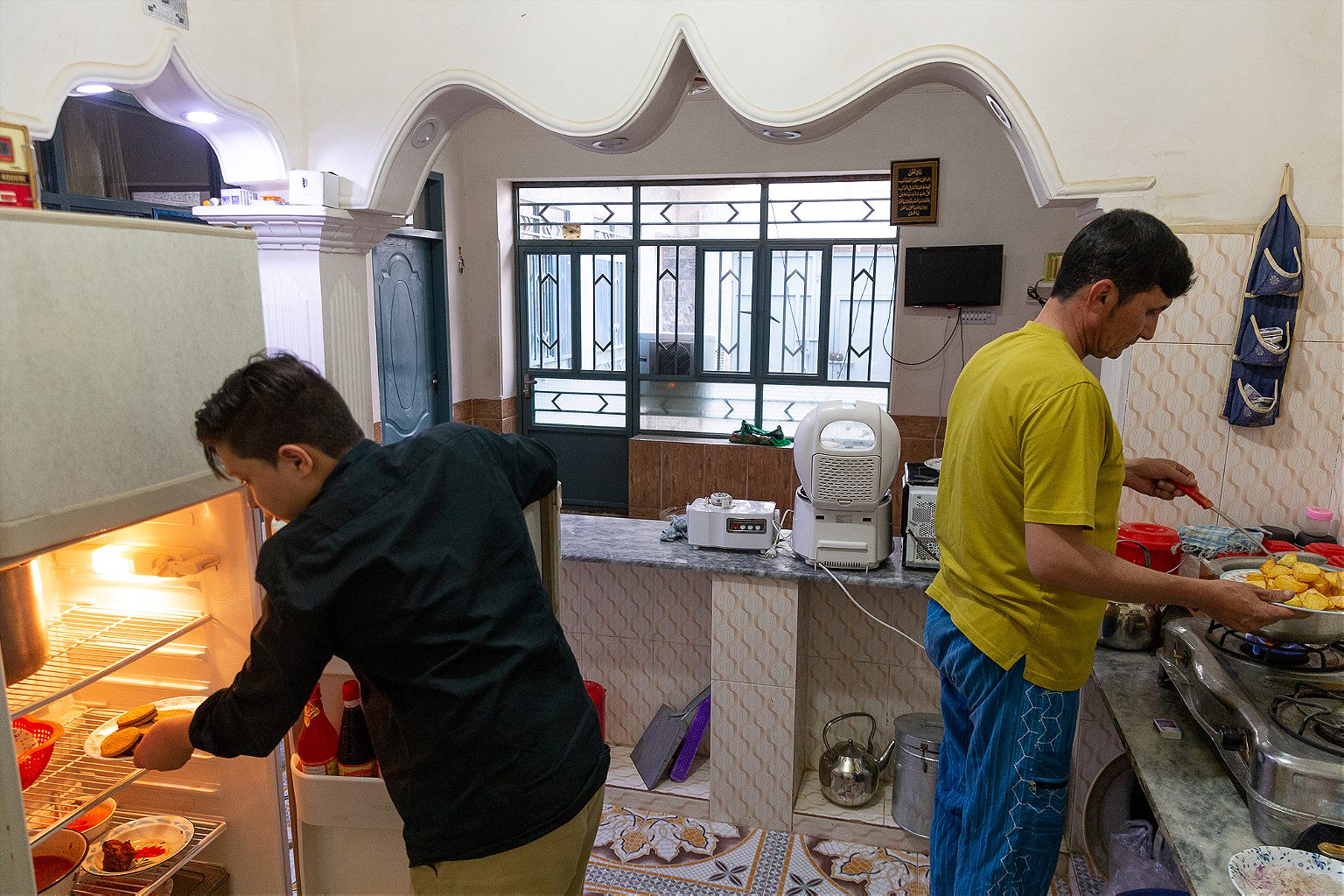
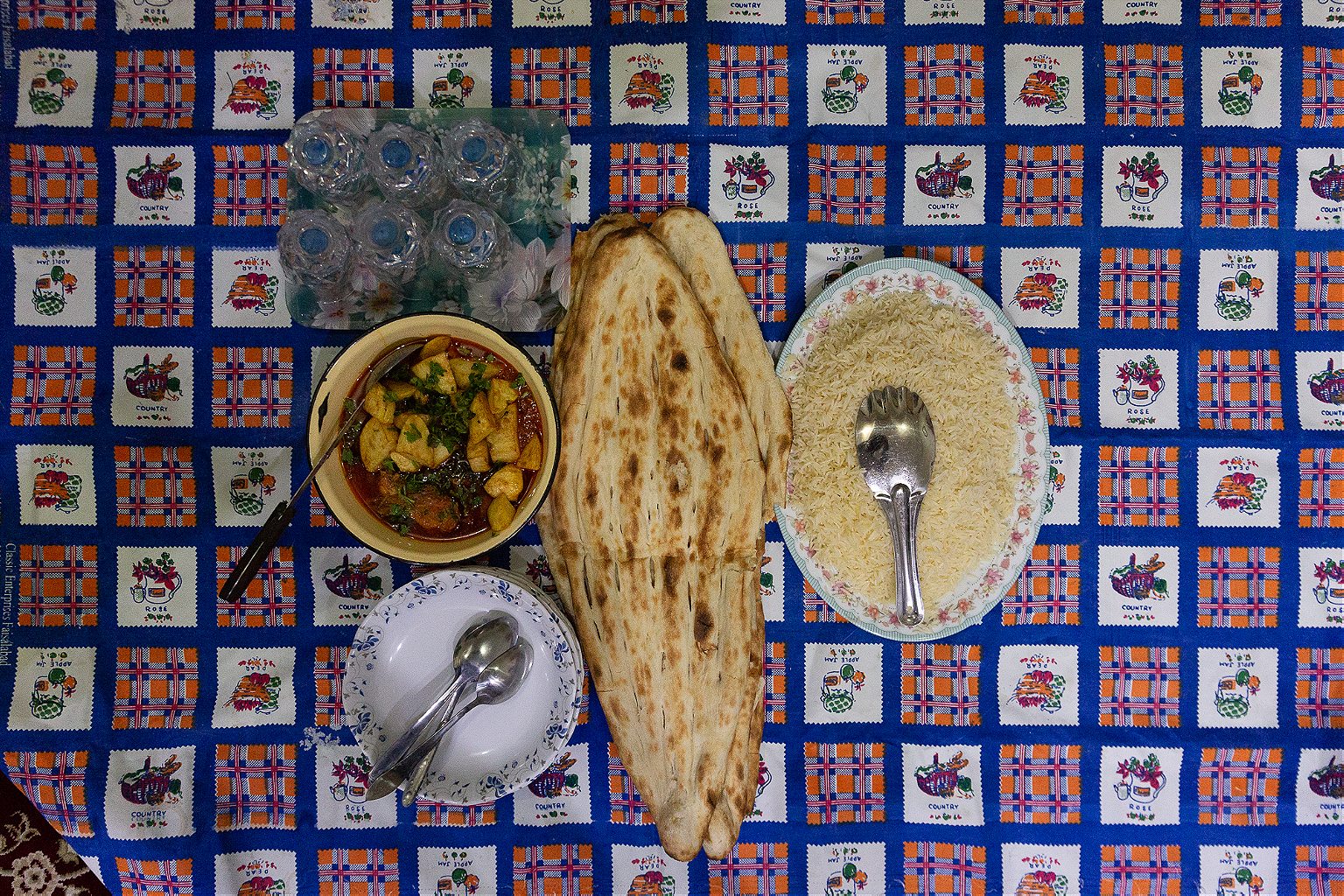
Hamida grew up in Mariabad, a middle-class area of Quetta with wide roads and well-made houses. But a few months after the restaurant opened, she and her family moved to Hazara Town to be closer to the business. They had little choice. Spinny Road, which connects Mariabad with Hazara Town and provides the only route for Hazaras to access their local market, had, in recent years, become a death trap.
Scores of Hazara vegetable sellers, taxi drivers, and commuters have been killed on this journey, most recently in October when Barat Ali, a resident of Hazara Town, was gunned down on his way to the market. The killing didn’t make headlines or evoke public expressions of shock and horror, or inspire large-scale protests against sectarian violence. Barat Ali’s death was as routine as the “honor” killings tucked into small boxes in the corners of daily papers, or in small-font tickers on TV newscasts.
Since 1999, when the education minister Nisar Ali Hazara narrowly survived an assassination attempt, the Hazara community has suffered more than 2,000 hate-related killings, over 500 of them in the last five years alone. The year 2013 was particularly bloody. In January, four separate explosions ripped through a billiard hall on Alamdar Road in Mariabad, killing at least 115 people and wounding more than 270. A month later, a bomb hidden in a water tank exploded at a market in Hazara Town, killing 110 people and injuring another 200. Another bomb detonated in June, killing 33 Hazaras and seriously wounding 70. The dead in that attack included nine women and four children. “We’ve carried bodies from the streets,” Hamida says, “We’ve carried the unborn children of pregnant women.”
Even before opening the restaurant, women, many of whom have lost spouses, fathers, and brothers to these attacks, would come to Hamida to tell her their struggles: their inability to pay their sons’ schooling fees or to send their daughters to bigger cities like Karachi or Lahore to seek higher education. “I felt the biggest setback for women in the community was economic,” Hamida says. “Charity isn’t a long-term solution. Instead of asking for help, instead of depending on others, why not stand on your own two feet?”
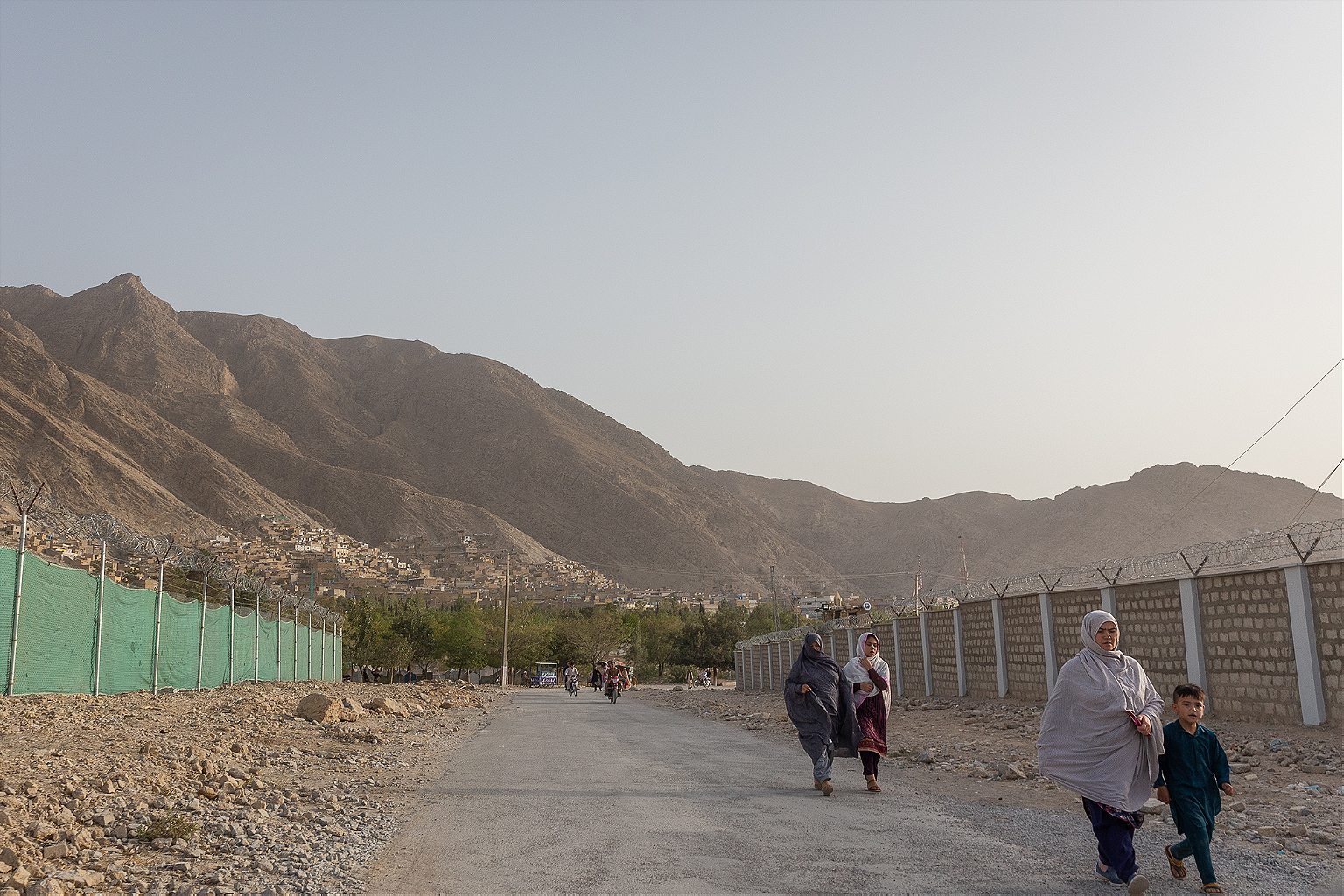
“On your way here, you must have noticed there were not many women outside,” she went on. “When I stood for the elections, my face was plastered on banners in the streets. And even people from educated backgrounds would pass snide remarks about me.” She adjusted the brightly coloured scarf on her head. “You know how people are. If they say things like this about me, imagine what they say about the average working woman?”
Many of the women who came to the restaurant with the intention to work did not last longer than one or two months. They would show up to interviews accompanied by supportive mothers. But after a month or two on the job, a father or brother would show up at the restaurant complaining of Hamida’s disregard for the family’s honor.
Shortly after Hamida opened the restaurant in August 2017, major news outlets within and outside Pakistan picked up her story, hailing her as “The Maverick” and praising her “Bravery of a Different Kind.” But this attention came at a price. While many supported the project, others—mostly men—objected. They would say: “Why are women stepping out of their homes? What’s the need? They can stay at home and do needlework,” Hamida recalls. She would respond: “This is not the needlework generation.”
Harassment began in earnest with a single photograph, published by BBC Urdu, of male politicians from what is now the ruling party, the Pakistan Tehreek-e-Insaf, dining at Hazara Restaurant. A female staff member appears in the photo, setting something on the table, her face lowered so you can’t make out her identity, while the men continue talking to one another, indifferent to her presence. The photo circulated on social media, followed quickly by a smear campaign led by anonymous groups and mysterious accounts opened under pseudonyms.
“They said I was shameless, without honor,” Hamida said, reading aloud from print-outs of Facebook pages. “In the name of running a hotel, immorality is being spread,” read one. Another included a photograph of Hamida: “Dear sisters, be vigilant of your purda, as some agents of infidels are leading you towards immodesty with their slogans of freedom and culture.” A third read, “On the pretext of earning a livelihood, our mother’s and sister’s modesty is being snatched… Men only come to this restaurant to leer at women.” Ali launched a cybercrime complaint with the Federal Investigative Agency, but nothing came of it.
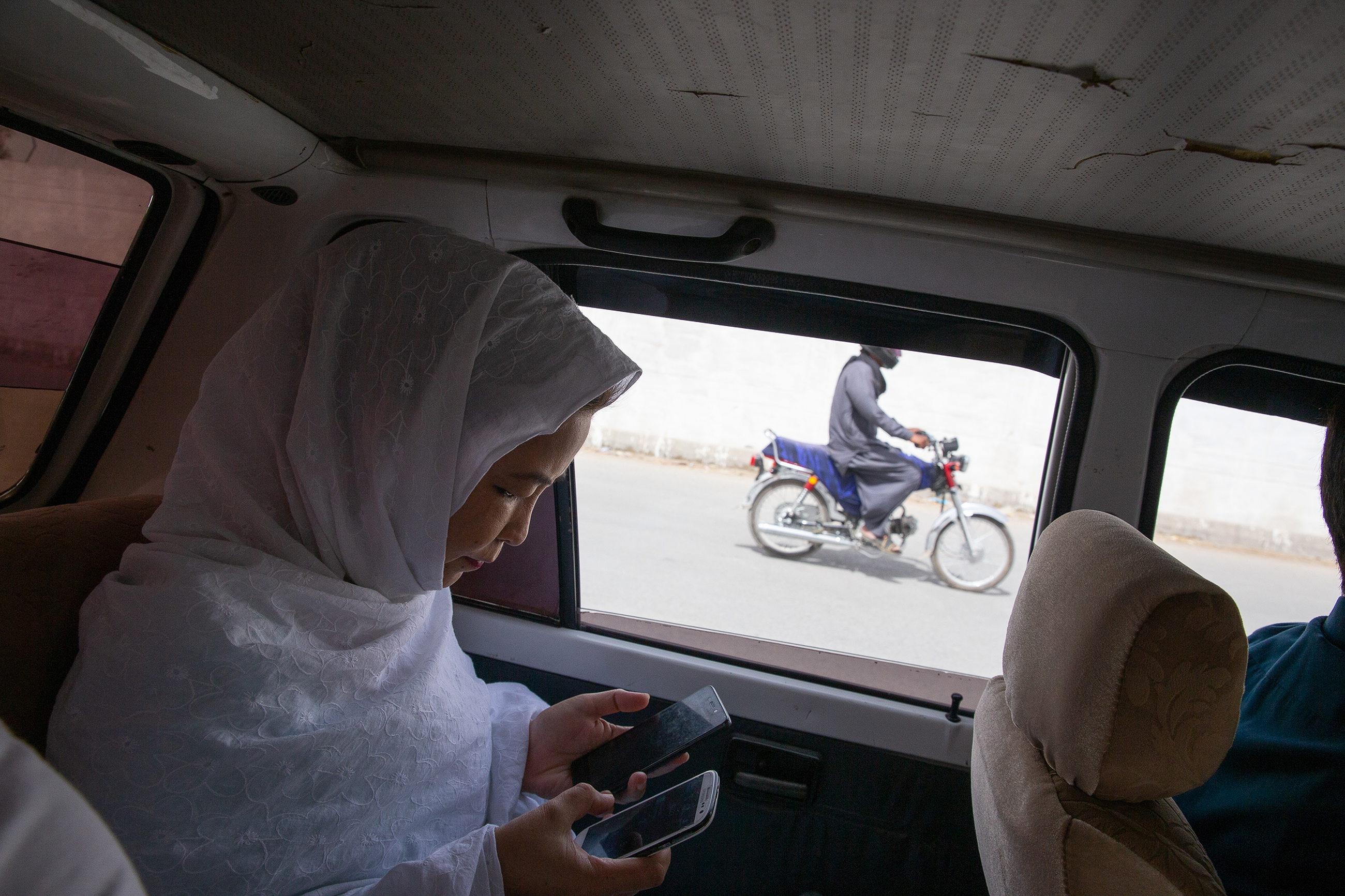
Tensions came to a head on a cold night in November 2017. Hamida, Ali, and their sons were closing the restaurant when a pair of assailants, hidden in shadow outside, opened fire with a silenced pistol. They missed—but only barely. It’s not clear if the assailants were from within the community or outside, or if their intention was to harm or simply intimidate. The family spent the night at Hamida’s parents’ house in Mariabad and, first thing the next morning, filed a police report. A year later, there have been no arrests.
Though the harassment has ceased, Hamida still feels uneasy. Above all, she’s afraid for the future of her community and what she feels is its increasingly reactionary youth. “Because of the violence and subsequent ghettoization, the minds of our youth are being closed, especially towards women. Our elders did not think like this,” Hamida reflects. “They speak of honor on one hand, but the sort of accusations they make show they are the dishonorable ones.” She pauses, then adds hastily, “This is just on social media. On the streets, they recognize me. They respect me.”
Most Hazaras in their teens and early twenties would have no memory of better times, of their community’s long tradition of relative progressivism in an increasingly conservative nation. Instead, they spent their formative years in fear and isolation. Peace comes and goes unannounced, but the collective psychological wounds will take generations to heal. “There is so much trauma, depression, untreated sickness,” Hamida tells me as I prepared to leave her home after dinner.
It was nearing 11 p.m., and Hamida offered to accompany me to the same checkpoint at the edge of the neighborhood. On our way, we passed a group of young men huddled together in the shadows, passing around a lighter. Drugs are another problem in Hazara Town, Hamida says, “but they don’t let me talk”. I asked her if she thinks people in the community prefer silence because they feel a need to maintain a certain kind of public image, a shield against threats from larger forces. “You mean loag kya kahain ge?”—what will people think?” She nods. “That’s a Pakistani problem, minority or not.”






